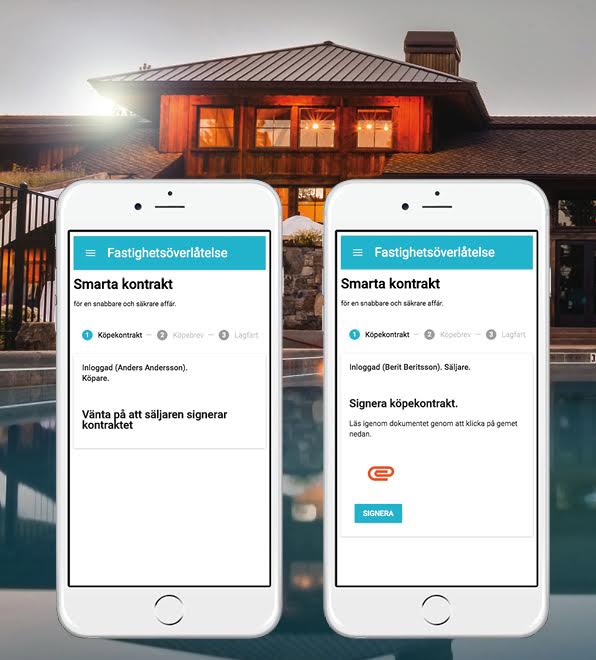Sweden Tests Blockchain-Based Land Registry

Sweden could become the first country to have a blockchain-based land registry. A team of technology players is working with the country’s land registry on a system that could possibly go live this fall, according to Reuters .
ChromaWay, a Swedish blockchain company, consulting firm Kairos Future, and telecommunications service provider Telia, have developed “proof of concept” demonstration of how the Swedish land registry would work.
Blockchain Brings Benefits
The blockchain ledger can allow clearing and settlement on one database that provides an easier-to-use and more reliable system than the existing method.
Once a buyer and seller agree on a contract, a transaction gets recorded on the blockchain, said Magnus Kempe, director of retail and finance at Kairos Future. All parties to the transaction – the buyer, seller, broker, bank and government – can then track its progress.
The blockchain could shorten the transaction process, which currently takes months to complete once an agreement is made.
A demonstration is available on the ChromaWay website .
Phase Two Begins
Kempe said the process has already been tested with some banks as the project’s first phase. “Now we’re on the second phase of the project where we will test in a full-sized environment,” he said. He said the project could go live in the fall.
Mats Snäll, head of development of real estate registration at the Swedish Land Registry, said digital documentation of property transfers allows all parties in a transaction to confirm an agreement with the highest security level.
“Being able to assign pending title deed is also something of value for all parties,” he noted. “Everyone will benefit from this.”
The parties agreed that the blockchain system is more secure, faster, and far less prone to error than the existing method.
The blockchain can control and regulate the workflow, the land registry noted, reported arstechnica.co.uk .
Digital Fingerprint Technology
The blockchain verifies the document is correct, along with the rules and order of authorization using digital fingerprint technology. Fingerprints are unique for each document, registration and process step, creating a verification that is similar to a human fingerprint.
Digital contracts minimize the risk of registering incorrect information and the inability to secure the title deed and the confirmation from the land registry of the land ownership.
“The proposed solution would make Sweden the front runner in this field,” the land registry noted.
ChromaWay specializes in identifying ways to store assets such as property and shares on the blockchain using colored coins. ChromaWay developed an award-winning Cuber app with Estonia’s LHV Bank that enables users to send and receive Euros without charge.
Henrik Hjelte, chief of ChromaWay, said the company was the first organization with solutions to register contractual processes in the blockchain. “We are proud to contribute to establish the technology for real estate transactions, an area we have been looking at for a long time,” Hjelte said.
Featured image from Shutterstock.
